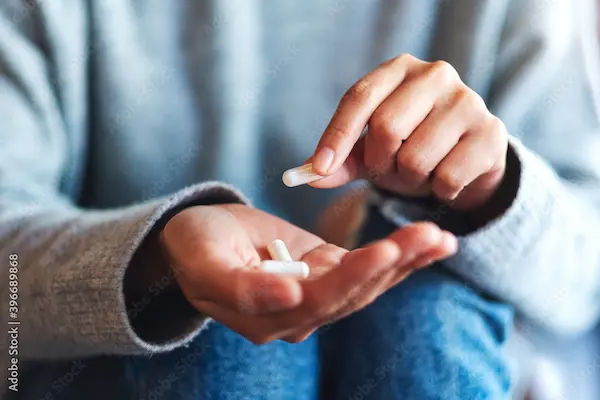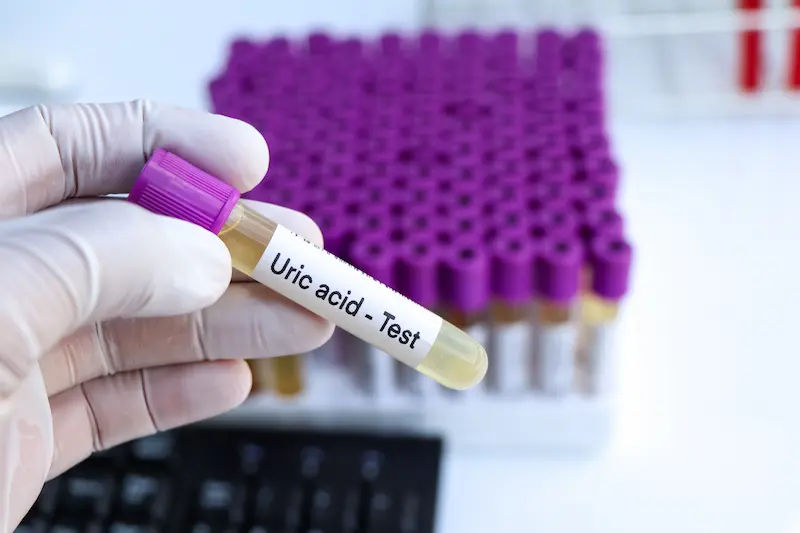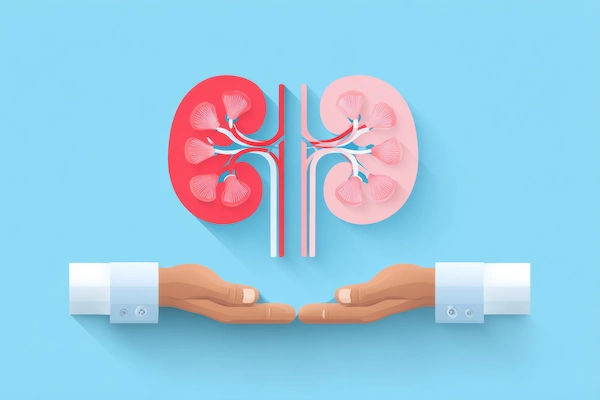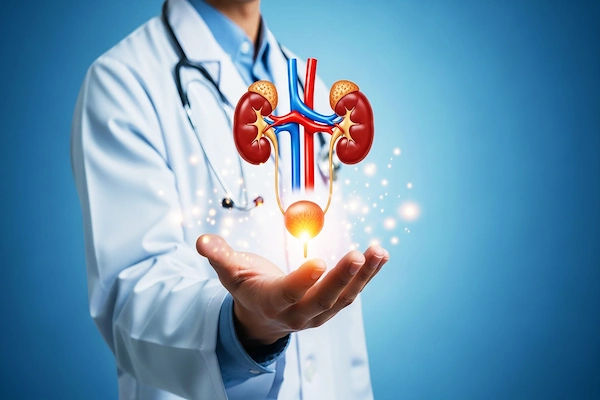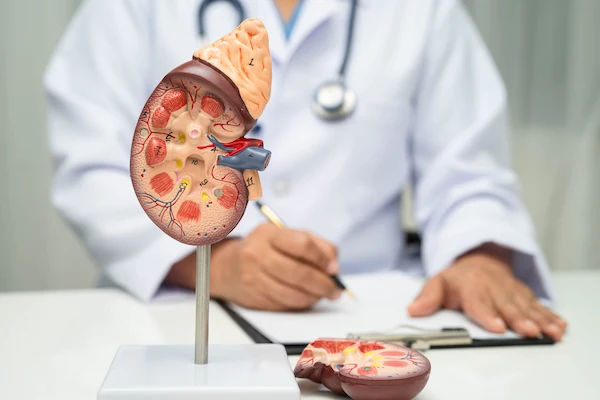Guide to Kidney Health Awarness On World Kidney Day
Discover essential tips for kidney health awareness on World Kidney Day. Learn about prevention, early detection, and lifestyle habits to maintain healthy kidneys and reduce the risk of chronic kidney disease.

Written by Dr. M L Ezhilarasan
Reviewed by Dr. Rohinipriyanka Pondugula MBBS
Last updated on 13th Jan, 2026

Your kidneys are the silent, hardworking custodians of your health, performing a life-sustaining job around the clock. Often overlooked until a problem arises, these two bean-shaped organs are critical for filtering waste, balancing fluids, and regulating blood pressure. On World Kidney Day, we turn the spotlight on these vital organs to raise crucial awareness. Kidney disease is a growing, silent epidemic, affecting millions worldwide, often with no symptoms until the advanced stages. This comprehensive guide will empower you with the knowledge to understand your kidney health, recognise the risk factors and early kidney warning signs, and take proactive steps to protect your well-being for years to come. Let's dive in and give your kidneys the attention they deserve.
Why Your Kidneys Are Your Body's Unsung Heroes?
Your kidneys do far more than just produce urine. They are sophisticated processing plants, each containing about a million tiny filters called nephrons. Every day, they process roughly 200 quarts of blood to sift out about 2 quarts of waste products and extra water, which become urine. This intricate process is essential for removing toxins like urea and creatinine from your bloodstream, preventing a harmful buildup that could poison your body.
But their role extends far beyond mere filtration. They are master chemists, producing hormones that regulate blood pressure (renin), stimulate red blood cell production (erythropoietin), and activate vitamin D, which is essential for strong bones. By meticulously balancing levels of sodium, potassium, and other electrolytes, your kidneys ensure your nerves, muscles, and other tissues function correctly. When we ask, "what do kidneys do?", the answer is: they are fundamental to your overall health and homeostasis.
Understanding Chronic Kidney Disease (CKD)
Chronic Kidney Disease (CKD) means your kidneys are damaged and can't filter blood as well as they should. This damage typically happens slowly over a long period, which is why it's often called a "silent" disease. The global statistics are staggering. According to the Global Burden of Disease study, nearly 700 million people worldwide suffer from CKD. It's a leading cause of death, and its prevalence has risen dramatically over the past two decades.
CKD is categorized into five stages, based on your Glomerular Filtration Rate (GFR), which measures how well your kidneys are cleaning your blood.
- Stages 1-2: Often have mild damage with few or no symptoms. Early detection is key.
- Stage 3: Considered mid-stage; waste products may begin to build up.
- Stages 4-5: Severe kidney damage and failure. Stage 5 is also known as End-Stage Renal Disease (ESRD), requiring
dialysis or a transplant to survive. Understanding the five stages of chronic kidney disease is crucial for grasping the progression and treatment options.
Key Kidney Disease Risk Factors
Certain conditions and lifestyle factors significantly increase your risk of developing CKD. The two most common causes are diabetes and high blood pressure.
- Diabetes: High blood sugar levels damage the tiny blood vessels in the kidneys' filters, rendering them inefficient. About 1 in 3 adults with diabetes has CKD.
- High Blood Pressure: This can damage the blood vessels in the kidneys, impairing their ability to filter blood effectively.
Conversely, damaged kidneys can also cause blood pressure to rise, creating a dangerous cycle.
Other significant risk factors for kidney disease include:
- Heart disease
- Family history of kidney failure
- Obesity
- Recurrent kidney infections or stones
- Prolonged use of certain medications, especially NSAIDs (like ibuprofen and naproxen) taken frequently.
Consult Top Specialists
Early Warning Signs and Symptoms
In the early stages, CKD often has no signs. As function declines, symptoms may appear, but they are often vague and
attributed to other things. Being aware of these early signs of kidney failure is vital:
- Fatigue, weakness, and difficulty concentrating (due to anemia or toxin buildup).
- Trouble sleeping.
- Dry, itchy skin.
- Increased or decreased frequency of urination.
- Foamy urine (indicating protein leakage).
- Blood in urine (hematuria).
- Persistent puffiness around the eyes and swelling in ankles and feet (edema).
- Muscle cramps.
You should seek immediate medical attention if you experience a sudden, complete, or near-complete stop in urination, as this could indicate acute kidney injury.
How Kidney Disease is Diagnosed?
Diagnosing kidney disease is straightforward and relies on two simple, inexpensive tests. If you have any risk factors, discussing these with your doctor is non-negotiable.
1. Blood Test for eGFR: This estimates your glomerular filtration rate by measuring the level of creatinine, a waste product, in your blood. A low eGFR indicates reduced kidney function. What is a normal GFR level? Typically, it's 90 or above. Below 60 for three months indicates CKD.
2. Urine Test for ACR (Albumin-to-Creatinine Ratio): This test checks for albumin, a type of protein, in your urine. Healthy kidneys don't allow much protein to pass into urine. Its presence (proteinuria) is a key early sign of damage.
For those at high risk or with abnormal results, Apollo24|7 offers convenient home collection for tests like serum creatinine and eGFR, making monitoring your kidney health easier than ever.
Proactive Prevention Strategies
The best treatment for kidney disease is prevention. Adopting a kidney-healthy lifestyle can significantly reduce your risk.
- Diet: Focus on fresh fruits, vegetables, whole grains, and lean proteins. Limit sodium (to control blood pressure), processed foods, and, if advised by a doctor, potassium and phosphorus intake in later stages.
- Hydration: Drinking plenty of water helps your kidneys clear sodium and toxins. A common guideline is 8 glasses a day, but needs vary.
- Medication Safety: Avoid long-term, habitual use of NSAIDs. Never misuse prescription medications. Always follow
dosage instructions. - Manage Underlying Conditions: This is the most critical step. Work with your doctor to keep your blood sugar and blood pressure within your target range. If your condition does not improve after trying these methods, book a physical visit to a doctor with Apollo24|7 to create a tailored management plan.
The Connection Between Lifestyle and Kidney Function
A healthy lifestyle supports every aspect of your health, including your kidneys. Regular exercise helps control weight, reduce blood pressure, and lower the risk of CKD. Maintaining a healthy weight reduces the strain on your organs. Furthermore, smoking damages blood vessels, decreasing blood flow to the kidneys and worsening existing damage. Quitting is one of the most powerful steps you can take. Limiting alcohol consumption also helps prevent hypertension and supports overall organ function.
World Kidney Day: Spreading Awareness and Taking Action
World Kidney Day is more than a date on the calendar; it's a global movement. Its mission is to raise awareness about the importance of our kidneys and to reduce the frequency and impact of kidney disease worldwide. You can participate by educating yourself and others, sharing information on social media, getting tested if you're at risk, and advocating for better kidney healthcare policies. It's a day for action, reflection, and commitment to our long-term health.
Conclusion
Your kidney health is a cornerstone of your overall well-being. While chronic kidney disease is a significant and growing challenge, it is also largely preventable and manageable with early intervention. On this World Kidney Day, empower yourself with knowledge. Understand your personal risk, listen to your body's subtle signals, and prioritize those two simple, life-saving tests. By adopting a proactive approach to your health, you can take control and ensure your body's unsung heroes continue to function effectively for years to come. Don't wait for symptoms to appear—schedule a check-up with your doctor today and make a commitment to your lifelong kidney health.
Consult Top Specialists
Consult Top Specialists

Dr. Manju Kamal
Nephrologist
12 Years • MBBS,MD(General Medicine), DNB,DM(Nephrology)
Angamaly
Apollo Hospitals Karukutty, Angamaly
Dr. S Krishnan
Nephrologist
22 Years • MBBS, MD, DNB(Nephro)
Secunderabad
Apollo Hospitals Secunderabad, Secunderabad

Dr. Sunil Jawale
Nephrologist
17 Years • MBBS, MD (Internal Medicine), DM (Nephrology)
Pune
Apollo Hospitals Pune, Pune

Dr. Mohan Patel
Nephrologist
7 Years • MBBS MD (Med) DM (Nephro) FASN, FISN, ANIO
Nashik
Apollo Hospitals Nashik, Nashik
(25+ Patients)

Dr. Bhanu Prasad K
Nephrologist
8 Years • DM (Nephro), MD, MBBS
Hyderguda
Apollo Hospitals Hyderguda, Hyderguda
(25+ Patients)
Consult Top Specialists

Dr. Manju Kamal
Nephrologist
12 Years • MBBS,MD(General Medicine), DNB,DM(Nephrology)
Angamaly
Apollo Hospitals Karukutty, Angamaly
Dr. S Krishnan
Nephrologist
22 Years • MBBS, MD, DNB(Nephro)
Secunderabad
Apollo Hospitals Secunderabad, Secunderabad

Dr. Sunil Jawale
Nephrologist
17 Years • MBBS, MD (Internal Medicine), DM (Nephrology)
Pune
Apollo Hospitals Pune, Pune

Dr. Mohan Patel
Nephrologist
7 Years • MBBS MD (Med) DM (Nephro) FASN, FISN, ANIO
Nashik
Apollo Hospitals Nashik, Nashik
(25+ Patients)

Dr. Bhanu Prasad K
Nephrologist
8 Years • DM (Nephro), MD, MBBS
Hyderguda
Apollo Hospitals Hyderguda, Hyderguda
(25+ Patients)
More articles from Kidney Disease
Frequently Asked Questions
1. What are the first signs of kidney problems?
The very first signs are often subtle and include fatigue, difficulty sleeping, poor appetite, and mild puffiness around the eyes. As these can be linked to many issues, getting tested is key if you have risk factors.
2. Can damaged kidneys heal?
Kidneys can often recover from acute (sudden) injury. However, damage from Chronic Kidney Disease is usually permanent. The goal of treatment is to stop or slow the progression of the disease and manage symptoms. Early detection offers the best chance to preserve function.
3. How much water should I drink for my kidneys?
A common recommendation is 8 glasses (about 2 liters) per day. However, this can vary based on your climate, activity level, and health. If you have advanced kidney disease, your doctor may actually recommend fluid restriction.
4. Are kidney pains a symptom of CKD?
Not typically. CKD is generally painless. Sudden, sharp pain in your back or side is more commonly associated with kidney stones or an acute infection. If symptoms like pain persist, consult a doctor online with Apollo24|7 for further evaluation.
5. Is protein bad for your kidneys?
For healthy individuals with no existing kidney issues, a high-protein diet is not harmful. However, for those with diagnosed kidney disease, especially in later stages, a doctor or dietitian will often recommend reducing protein intake to lessen the kidneys' workload.
